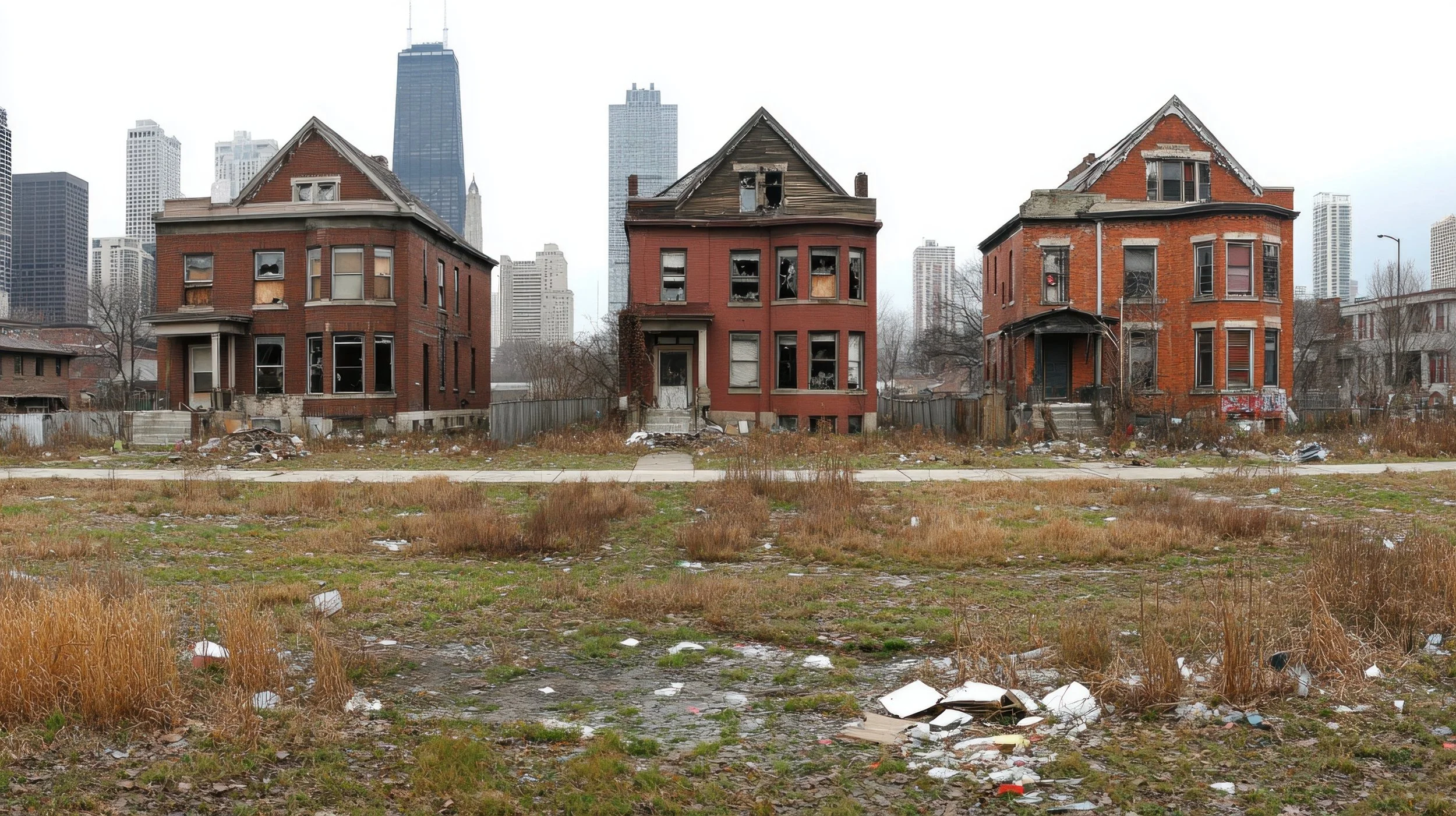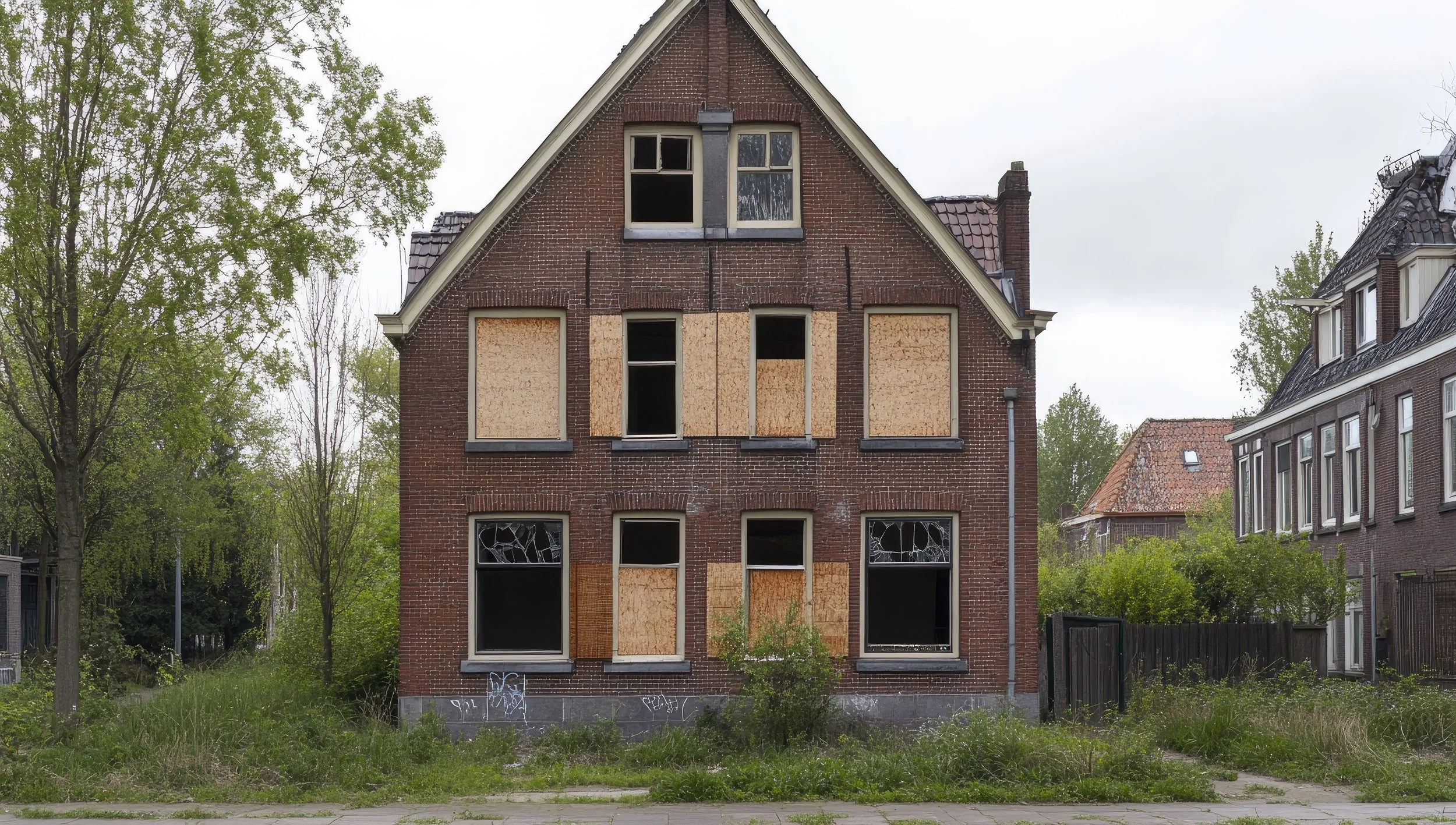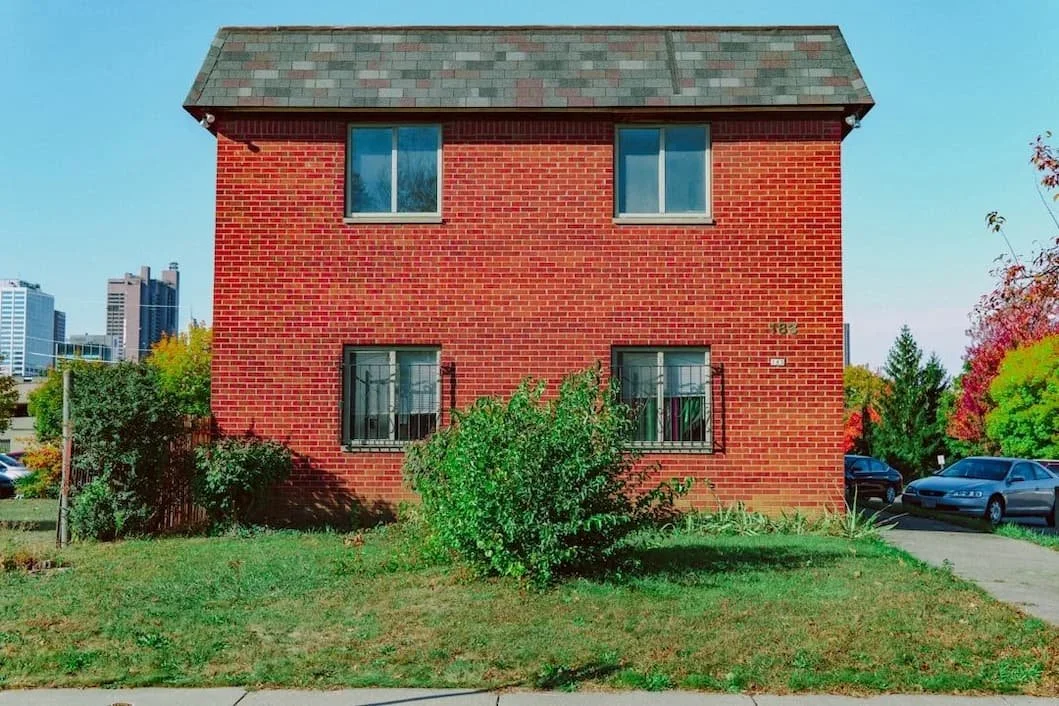Chicago’s Abandoned Houses: Legal, Safety & Buying Tips
Row of abandoned buildings in Chicago with potential for redevelopment or resale.
Abandoned buildings in Chicago are more than just empty structures. They tell stories of economic shifts and urban change. For some, these properties represent opportunity and potential profit. For others, they pose risks and challenges.
Understanding the landscape of abandoned homes in Chicago is crucial for anyone considering a purchase. Whether you're a homebuyer, investor, or urban explorer, knowing the ins and outs can make all the difference.
This guide will help you navigate the complexities of finding, buying, or avoiding these properties. From legal considerations to potential rewards, we cover it all. Dive in to learn what you need to know about Chicago's abandoned properties.
Understanding Abandoned Buildings in Chicago
Abandoned buildings in Chicago are found across diverse neighborhoods. Economic decline and population shifts contribute significantly to this. Each building tells a unique story of past vibrancy.
The city's landscape includes many abandoned properties, which can be daunting. However, they also present numerous opportunities for the right buyers. Knowing the types and locations of these buildings can be helpful.
A variety of factors cause houses to be abandoned in Chicago:
Economic hardship
Foreclosure
Owner relocation
Potential buyers need to grasp the broader urban issues that lead to abandonment. Understanding these dynamics is vital before making purchasing decisions. It is essential to consider both the risks and the rewards of investing in such properties.
Chicago is also committed to revitalizing its neighborhoods. Initiatives are in place to address and transform abandoned properties. Knowing these programs can guide prospective buyers toward successful investments. Understanding the market and city efforts is crucial when considering these neglected spaces.
Why Do Houses Get Abandoned in Chicago?
Houses in Chicago may become abandoned for a range of reasons. Financial challenges such as job loss or unexpected medical expenses can push homeowners into untenable situations. This often leads to foreclosure and subsequent vacancy.
In some cases, families move due to better job prospects elsewhere, leaving homes empty. The allure of new opportunities in other cities can drive people away from their properties. This might leave the homes unoccupied and neglected.
Economic shifts and declining industries also play a role in abandonment. Neighborhoods that once thrived can deteriorate when businesses close or relocate. Some common reasons for house abandonment include:
Financial hardship
Foreclosure
Relocation
Are Abandoned Houses Dangerous?
Abandoned houses can pose several dangers. Structural integrity can be compromised over time, leading to potential collapses. Poor maintenance may result in hazards like exposed wiring or broken glass, posing risks to visitors and nearby residents.
Additionally, these properties might become hotspots for illegal activities. Vacant homes can attract vandals or squatters seeking shelter. Properties could also harbor pests or become targets for theft.
Potential dangers of abandoned houses include:
Structural damage or collapse
Vandalism and illegal activities
Health hazards from pests or contaminants
Is It Illegal to Live in an Abandoned House?
Living in an abandoned house without permission is illegal. Trespassing laws apply, making unauthorized occupancy punishable. Legal consequences can include fines or eviction, depending on local regulations.
Occupying a property legally requires proper consent. This might involve contacting the rightful owner or obtaining legal authority. Simply moving into a vacant home does not grant any legal rights or protections.
It’s essential to ensure legal residency by:
Securing permission from the owner
Obtaining proper legal documentation
Following local housing regulations and laws
How to Find Abandoned Buildings in Chicago
Are abandoned houses dangerous? Many pose safety and legal issues for neighbors and cities alike.
Finding abandoned buildings in Chicago requires research and local knowledge. They are scattered across many neighborhoods, each with its unique history. Understanding which areas have higher concentrations is a good starting point.
Numerous resources can help identify potential properties. Online databases and local real estate listings often feature such properties. Auctions and city programs also provide avenues for finding these buildings.
Networking with real estate agents can provide valuable insights. They often know about properties before they hit the market. Engaging with local community forums might reveal lesser-known opportunities or provide historical context.
Consider the following methods to locate abandoned buildings:
Use online real estate marketplaces
Attend city auctions and real estate events
Engage with local real estate professionals
Participate in community and neighborhood meetings
Combining these resources increases the likelihood of success. It takes patience and persistence to uncover the right opportunity.
How to Buy Abandoned Property in Chicago
Buying abandoned property in Chicago involves a multifaceted approach. First, thorough research is vital. Understanding the legal status of each property can prevent future complications. Consult public records to verify ownership details and check for any outstanding liens or taxes.
Next, consider the method of acquisition. Many abandoned buildings are sold through auctions. Familiarize yourself with auction procedures beforehand. This will help avoid common pitfalls. City programs also offer properties with the intent of community revitalization. These programs might include tax incentives or renovation grants, adding value to the purchase.
Financing is another crucial step. Options include renovation loans, which provide funds for both purchase and repairs. For those with ready capital, cash payments can simplify the process. In any case, consult with a financial advisor to explore the best approach based on your resources.
Consider these steps for successful purchase:
Research property ownership and liens
Decide between auction or city programs
Explore financing options like renovation loans
Consult with legal and financial advisors
Lastly, working with experienced professionals is invaluable. Real estate agents and lawyers can offer guidance tailored to the Chicago market. Their expertise can navigate the complexities involved, ensuring a smoother transaction. By being thorough and informed, buyers can turn abandoned properties into valuable investments.
Legal and Financial Considerations
Navigating the legal landscape of abandoned properties requires diligence. Chicago properties often have tangled legal issues. These can include liens, unpaid taxes, or disputes over ownership. It’s essential to clear these before proceeding with any purchase to avoid future legal headaches.
Additionally, understanding local zoning laws is critical. These regulations influence how a property can be used or modified. Some buildings might have historical designations that restrict changes. Check city records to confirm any limitations or requirements attached to the property.
Financially, it's wise to prepare for unexpected costs. Abandoned homes often require substantial repairs or upgrades. Uncovering hidden damages during renovations can inflate budgets. A detailed inspection can help estimate these costs upfront, ensuring buyers aren’t blindsided.
One critical step for maintaining vacant properties is winterizing your vacant house to prevent damage. Frozen pipes and weather-related issues can cost thousands in repairs if left unaddressed. Professional winterization is especially important for properties that will sit empty through Chicago's harsh winters.
When evaluating legal and financial aspects, consider these actions:
Review liens and ownership disputes
Understand zoning laws and regulations
Conduct detailed property inspections
Budget for potential renovation expenses
Engaging legal and real estate professionals can ease these processes. They offer insights into the paperwork and compliance matters unique to Chicago. This helps safeguard the investment and ensures adherence to city ordinances and financial responsibilities.
Risks and Challenges of Buying Abandoned Homes
Purchasing abandoned homes in Chicago presents unique challenges. These properties often hide structural issues and other unseen problems. Unexpected repairs can quickly increase costs, impacting your budget and timeline.
Security issues are another concern. Abandoned buildings might attract vandalism or illegal activities. Ensuring the property is secure is essential to prevent damage or liabilities. Lock changes and installing security measures are initial steps to take.
It's crucial to assess the property's resale or rental potential. Changing neighborhood dynamics might affect long-term value or marketability. Evaluating market trends and seeking expert advice can guide you in making informed decisions.
Key challenges to consider include:
Unforeseen repair costs
Security and safety concerns
Resale and rental potential
Addressing these risks head-on minimizes surprises, helping transform challenges into opportunities with due diligence and strategic planning.
If you own an abandoned or vacant property in Chicago and the challenges feel overwhelming, many owners choose to sell their vacant property for cash rather than maintain it. This eliminates ongoing expenses like property taxes, insurance, winterization, and security concerns while avoiding the risks of continued vacancy.
Maintaining Vacant Properties During Renovation
If you purchase an abandoned property, proper maintenance during renovation is crucial. Learn how to manage utilities in vacant properties to reduce costs and prevent damage. This includes decisions about keeping heat on during winter, managing water service, and maintaining adequate insurance coverage throughout the renovation process.
Opportunities and Benefits for Buyers and Investors
Investing in abandoned homes in Chicago offers attractive opportunities. These properties often sell below market value, allowing buyers to acquire real estate at a bargain. With careful investment, there is potential for significant financial returns.
Rehabilitating these properties can also rejuvenate neighborhoods. Revitalization efforts contribute to community development and can enhance property values over time. Investors not only benefit financially but also make a positive social impact.
Tax incentives and grants are available for those willing to undertake renovation projects. These financial perks lower the initial investment burden and increase the project's feasibility. Exploring these options can make investments more appealing.
Benefits include:
Lower purchase costs
Community revitalization
Eligibility for tax incentives and grants
Seizing these opportunities requires insight and strategy. Proper planning turns potential risks into lucrative benefits, enriching both investors and the surrounding community.
Tips for Avoiding Problematic Abandoned Properties
Identifying abandoned properties with potential pitfalls is vital for avoiding costly mistakes. Conduct thorough inspections to uncover hidden structural issues or hazardous conditions. Knowing what lurks beneath the surface can save money and headaches.
Researching the property's history is another crucial step. This can reveal past legal troubles or unresolved debts that might complicate ownership. Being proactive reduces risks associated with problematic properties.
Key tips include:
Inspect thoroughly for hidden damages
Research property history for legal issues
Verify clear title and ownership
By following these guidelines, buyers can make informed decisions and steer clear of troublesome investments. Preparedness and due diligence ensure a smoother purchasing process.
Revitalization and Community Impact
Revitalizing abandoned buildings in Chicago can significantly boost community morale and economic growth. Transforming these properties creates new housing, business opportunities, and community spaces. Abandoned sites hold potential that extends beyond mere real estate.
Community engagement plays a crucial role in successful revitalization. Involving local stakeholders ensures projects meet the neighborhood's needs and values. Revived buildings can become focal points of community pride and identity.
Positive impacts include:
Increased property values
Enhanced neighborhood aesthetics
Creation of affordable housing
These transformations not only improve the local economy but also enrich the cultural fabric of the area.
Conclusion: Making the Right Move with Chicago Abandoned Properties
Navigating the world of Chicago's abandoned buildings requires knowledge and preparation. Buyers and investors must understand legalities, potential hazards, and opportunities before making decisions. Thorough research and due diligence are essential.
Abandoned properties can be both rewarding and challenging. They offer unique investment opportunities but come with risks. With strategic planning and community involvement, these properties can be transformed into valuable assets. By making informed choices, you can contribute to revitalizing neighborhoods and enjoy the rewards of a wise investment.
FAQs
What are abandoned buildings in Chicago, and why do they exist?
Abandoned buildings in Chicago are properties that have been left vacant and neglected, often due to foreclosure, financial hardship, or legal disputes. These structures may include historic Greystones, commercial buildings, or single-family homes. They are most commonly found in disinvested neighborhoods across Cook County.
Why do houses get abandoned in the first place?
Houses may be abandoned due to job loss, unpaid property taxes, inherited property complications, or the owner passing away without heirs. In urban areas like Chicago, vacancy may also stem from redlining, depopulation, or long-term disrepair.
Are abandoned houses dangerous?
Yes, abandoned homes can pose serious safety risks. Without maintenance, they often attract vandalism, squatting, fire hazards, and structural decay. In Chicago, these buildings can also lower nearby property values and become public safety concerns.
Are there abandoned homes in Chicago Heights?
Yes. Chicago Heights, located in southern Cook County, has seen an increase in abandoned and tax-delinquent homes due to population shifts and economic hardship. Many of these properties may be eligible for investor purchase or public auction.
What is an abandoned house description for real estate purposes?
In real estate, an abandoned house is typically defined as a property that has been unoccupied for a prolonged period and shows signs of neglect—such as boarded windows, overgrown lawns, or code violations. These homes may still have legal owners, even if left unattended.
Is it illegal to live in an abandoned house in Chicago or Cook County?
Yes. Living in an abandoned property without the owner’s permission is illegal. It is considered trespassing and may lead to criminal charges. Even if a house appears vacant, it likely still has a legal owner or is held by the city or a bank.
How can I buy abandoned property in Chicago?
To buy abandoned property in Chicago, start by searching city databases, county tax auctions, or contacting the Cook County Land Bank Authority. Some Chicago abandoned properties may also be listed as abandoned buildings for sale, often requiring extensive rehab and permitting.
Are there abandoned houses for sale in Chicago?
Yes, many abandoned houses for sale in Chicago are available through auctions, private investors, or city-run programs. These opportunities can be ideal for developers or rehab investors willing to restore properties in distressed areas.
What are some examples of abandoned cities in Illinois?
Outside of Chicago, parts of southern and central Illinois have experienced significant depopulation, creating near-abandoned towns or neighborhoods. While not full “ghost towns,” places like Cairo, IL and Venice, IL often have high rates of vacancy and deteriorating housing stock.
Can you legally buy and live in an abandoned home in Chicago?
Yes, you can legally buy an abandoned home if you follow proper legal channels—such as purchasing it at auction, from the city, or via probate. However, you cannot legally occupy a home without ownership or permission.
If dealing with abandoned or vacant properties feels overwhelming, Dello Investments can help. We buy vacant houses for cash in Chicago, handling all the legal complexities, title issues, and paperwork. Whether the property is abandoned, condemned, or has been sitting empty for years, we purchase it as-is. Once you sell to us, we handle the rehab and bring the property back to productive use. Get your cash offer in 24 hours: (312) 975-5557.
Related Articles:
- How Much Does it Cost to Winterize a House in Chicago?



